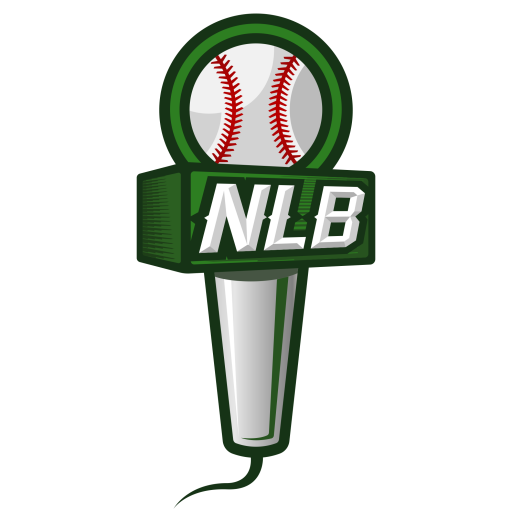
This week in Coaches Corner we have Ken Knutson, pitching coach at Arizona State University. Prior to coach Knutson’s three seasons at ASU, he spent 17 years as the head coach at the University of Washington. While at Washington he coached 31 All-Americans, including 2006 Golden Spikes Award winner and current San Francisco Giant Tim Lincecum.
We appreciate Coach Knutson stopping by for this insightful look into: What specific information potential recruits should send college coaches they are interested in playing for, what he looks for when recruiting pitchers, the hardest adjustment for freshman pitchers to make, what it means to be mentally tough on the mound, what has made Tim Lincecum successful, and more.
What advice would you give a HS ballplayer looking to play at ASU?
Send letters and emails. That’s how coaches find out about stuff
What specific advice would you give when it comes to sending those letters and emails?
Make sure you get to the point. Things to include:
-GPA. Grades are very important.
-High school and summer ball coaches’ contact information
-Your upcoming schedule so we can go watch them
When you are recruiting pitchers, what are some things they can do to stand out?
Velocity is the easiest one to see. Ability to consistently throw their change up and off speed for strikes. Their make up, how they deal with pitching. A lot of the guys we scout at ASU are pretty good, but I like to see how they handle adversity.
What would you say is the most difficult adjustment for freshman to make when transitioning to college baseball? And what can they do to adjust more quickly?
The speed of the game: Everything is fast. At this level, all the hitters are better and mistake pitches are going to be hit. It’s the same with every level you move up. The key is becoming more consistent. Everyone makes mistakes every once in a while. It’s not just about throwing 90 or 95, it’s about being consistent and locating.
What’s the best way for an underclassmen to get more playing time on a talented team?
Well, in our program, the best pitchers pitch. Its all about the guys who adjust the quickest, hold their own and pitch well. There’s not something magical, if they’re effective, they’ll pitch. With that being said, I don’t like to throw them right into the middle of the fire. I like to develop them.
Today, what are some of the biggest obstacles that keep college ballplayers from reaching their potential?
All the hype. The showcase mentality. Learning how to play the right way. Instead of playing the games just to win, there’s a ‘we’re just here to get looked at’ mentality. Understanding how to win and consistently play winning baseball.
I tell every guy that’s ever piched for me- If you haven’t given up home runs or been hit hard or lost games, you just haven’t pitched much. It’s going to happen. They have to learn to deal with it and mature.
How would you define a winning pitcher?
A guy who throws up to his abilities. I don’t want a guy who throws well in the bullpen but can’t put it together in the game. I want a guy who trusts who he is and that he’s good enough.
What does it mean to be a “mentally tough” pitcher?
Mentally tough kids are ones who play one pitch at a time and understand their job is to execute pitches. If you play with that mentality then the consequences and the pressure doesn’t bother you too much.
What do you think separates the good pitchers from the great ones?
Competitiveness and resilience. It’s not always stuff. I’ve coached guys who throw 100 and I’ve had guys who throw 85. Look at two of the best pitchers that I’ve coached- One threw 100mph and the other threw 85mph.
What do you tell your pitchers when it comes to dealing with adversity on the mound?
In the course of a ballgame, you have to expect some negative things to happen. I always tell our guys, ‘If you don’t expect it or think that there’s gonna be runners on 2nd and 3rd with no outs at some point in the game, then you’re not ready to pitch.” When that happens, it’s time to see what you’re made of. The mindset should be, lets get after this guy. Look forward to the opportunity to pitch well in the tough situations.
Who is the best pitcher you’ve coached?
Tim Lincecum. He definitely had the best stuff and was one of the best pitchers ever to pitch in college baseball. His stuff was crazy and set the all time PAC 10 strikeout record in just three seasons.
A few other guys that stick out:
Shawn Cone: He’s the guy I mentioned earlier. He actually threw about 83mph and was right handed. He had unbelievable command on the outer half of the plate and made it all the way to AAA.
Will Fenton: Was an unbelieveable closer I had. He went an entire college season without giving up a run- earned or unearned. He had an injury in the minor leagues hat prevented him from going further, but he was a special pitcher in college.
In your opinion, what makes Tim Lincecum such a good pitcher?
Tim was a little guy that threw really hard. He got really good training from his dad early on. He’s had the same delivery for the last 20 years. He’s really gotten good at what he does and that hard work and consistency is really paying off. He’s much more consistent today than he was even 5 years ago.
What’s one piece of advice you’d give to ballplayers out there who want to take their game to the next level?
You have to work at it. Roger Clemons once told me that ‘Pitching in the big leagues is a dream come true, but in-between it’s a nightmare.’ Pitching takes a lot of hard work and training. You don’t have to throw 100mph to be a great pitcher. A parent once asked me when’s the best time for my son to start working on his pitching. My answer was, ‘Today. And don’t stop working at it until you are done playing baseball for good.”


